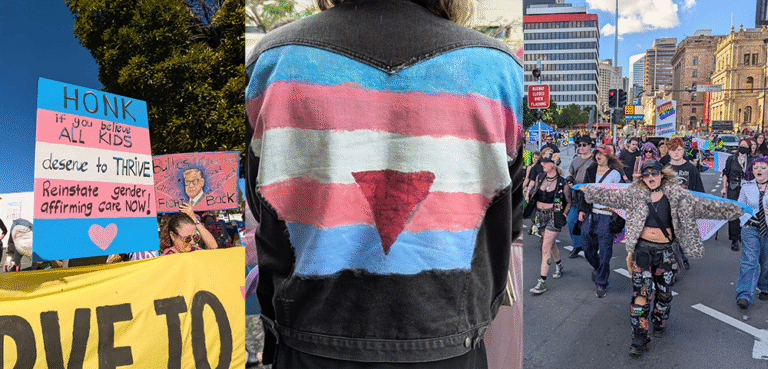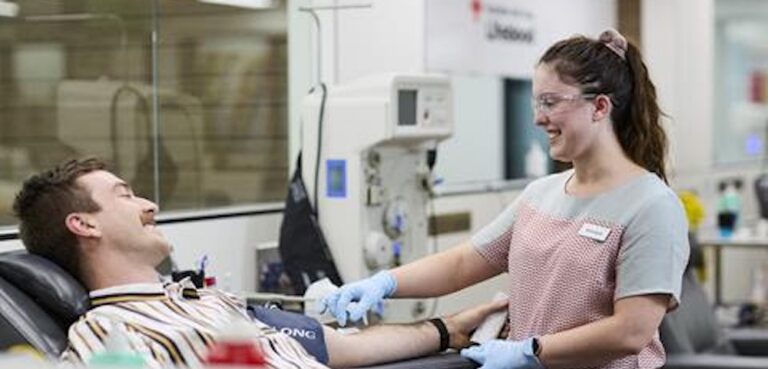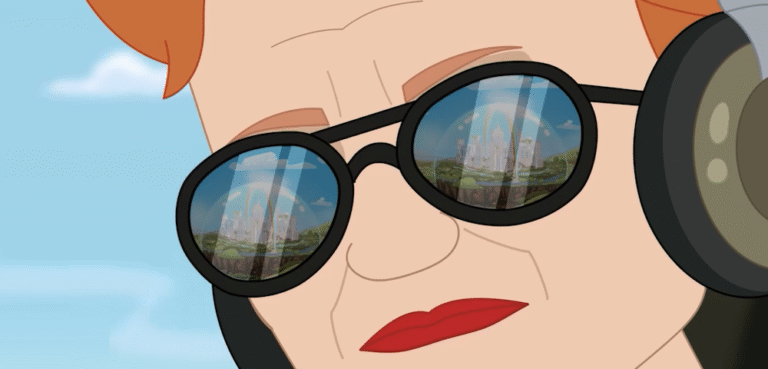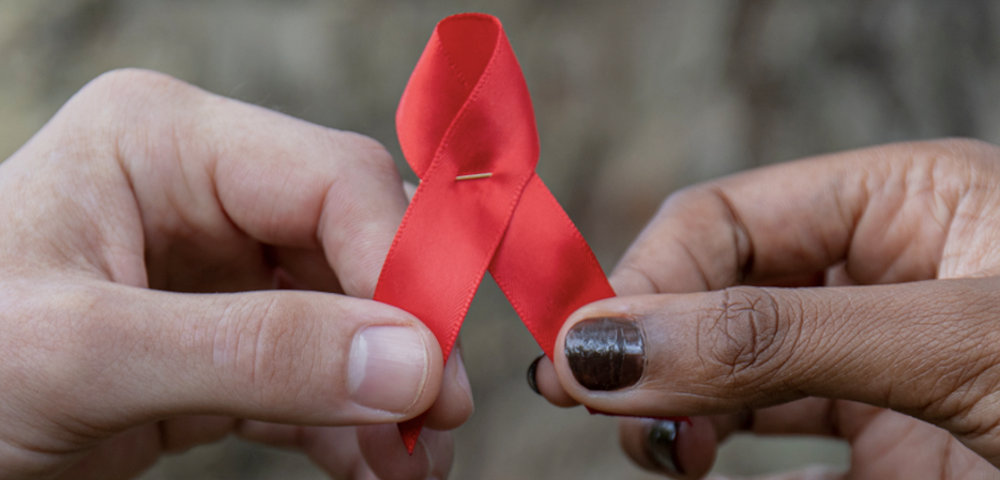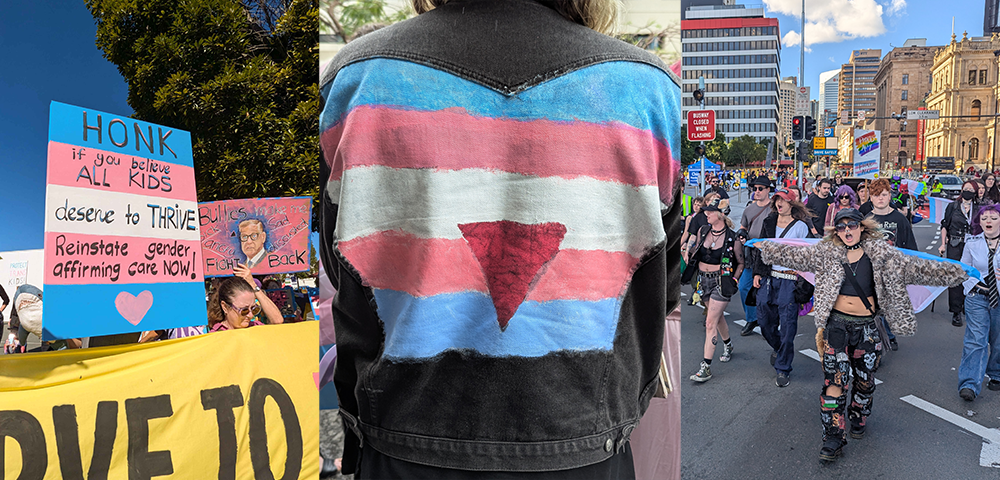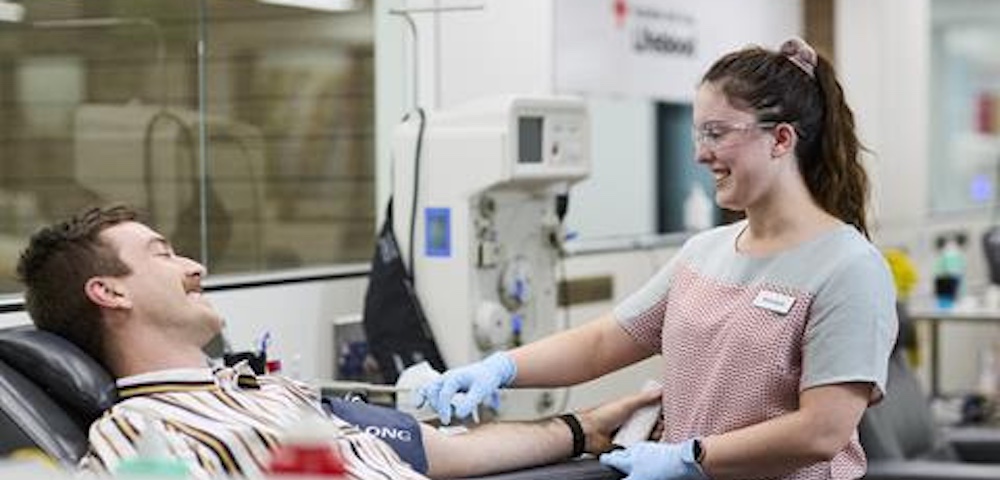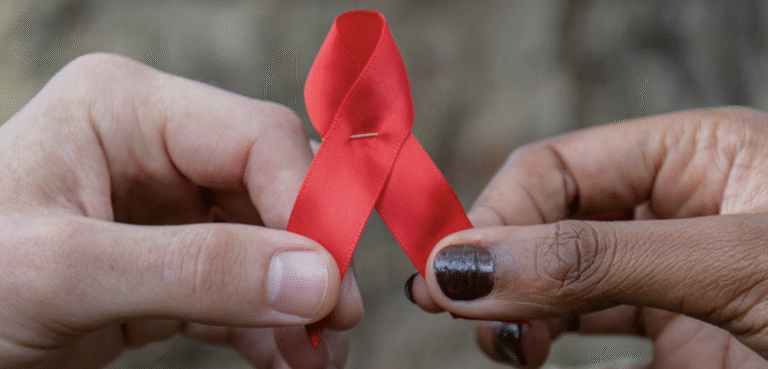
Late gay rights pioneer Lex Watson awarded Queen’s Birthday Honour
A PIONEER in the Australian gay and lesbian rights movement, Lex Watson, has been made a Member of the Order of Australia on this year’s Queen’s Birthday Honours.
Watson (pictured above), who knew about the honour two weeks before he died last month following a struggle with cancer, was listed for “significant service to the community as an advocate for gay and lesbian rights.”
He had been a campaigner for gay and lesbian rights since the late 1960s and was a foundation member, and later co-president, of CAMP, the first gay rights organisation in Australia.
He was also a founder of the Gay Rights Lobby and was instrumental in the campaign to decriminalise homosexuality in NSW in 1984, the 30th anniversary of which is to be celebrated this year.
In addition, Watson was also founder of the AIDS Action Committee and was the first president of AIDS Council of NSW (ACON).
At the time of his death, Watson was the president of the Pride History Group, who paid tribute to Watson with an obituary written by Robert French (below):
Main image: Lex Watson at the July 11, 1972, Sydney Gay Liberation/CAMP demonstration outside the ABC TV offices, which was protesting against the cancelling of a This Day Tonight report on gay liberation featuring Dennis Altman. David McDiarmid was arrested, the first at a gay rights protest. (PHOTO: John Storey SOURCE: Pride History Group)
———
Alexander (Lex) Watson, 1943-2014
Robert French
FOR many of his generation and beyond, Lex Watson was the face of gay activism in Sydney. He was a foundation member of the Campaign Against Moral Persecution (CAMP), the organiser of the first gay rights demonstration in Australia, a passionate advocate of homosexual law reform and anti-discrimination legislation, an AIDS activist, and a keen advocate for the preservation of gay community history. His was a courageous life of towering achievement.
Alexander ‘Lex’ Watson was born in Perth on January 29, 1943, the son of Alec Watson, a medical practitioner, and Margaret Newnham, formerly a nurse. There was an elder sister, Wendy, but a younger brother died in infancy. First educated in Geraldton, the family later settled in Perth. Lex attended Perth Modern School, where he studied German for five years — and developed a lifelong love of the language — along with French, then chemistry, as well as English, history and geography. He was interested in music — Otto Klemperer’s Beethoven discs were a favourite throughout his life — and he played an alto saxophone and also acted in the school’s Gilbert and Sullivan productions.
At puberty, his parents gave him a booklet on sex that contained a small non-judgemental paragraph on homosexuality. “So that’s what it is called”, he thought. He then looked up homosexuality in the school library but all the texts he consulted talked of disease and perversion. Lex’s response was, “why, they’ve got it wrong”. In a way, it became a defining moment of his life.
Lex won a scholarship to the University of Western Australia in 1960. He did an arts degree and studied two history subjects, English and philosophy — where he read John Stuart Mill, whose classic liberalism became the touchstone of his life and activism.
In his second year he added politics to his subjects, and for his honours year, he was advised by a lecturer to go to the government department at the University of Sydney. It was there that he was to work for the remainder of his academic life, teaching Australian politics.
The 1967 homosexual law reforms in Britain sparked his interest and he became involved with reform here in Australia. He was in Canberra in 1970 on the weekend the ACT Homosexual Law Reform Society formed and he joined. He then attended a public meeting in Sydney, organised by the Humanist Society, which formed a homoesxual law reform sub-committee on which Lex became a member.
Things changed with the formation of the formation of CAMP by John Ware and Christabel Poll in September 1970. Lex became a foundation member, and in early 1972, along with Sue Wills, he became its co-president.
Ware credited Lex with making the organisation political, and it was Lex who organised the first gay demonstration in Australia outside Liberal Party headquarters in Ash St, Sydney in October 1971. Lex, as an academic, had contacts in the Liberal Party and he got to hear of the challenge that arch-conservative Jim Cameron was to bring against the federal pre-selection of Tom Hughes, after Hughes — as Attorney-General — had raised the issue of homosexual law reform.
One major achievement of CAMP under Lex and Sue was their endeavour to highlight the dangers of aversion therapy and psycho-surgery as then-practised against women and homosexuals. That homosexual people then began to cease consulting practitioners for a “cure” was a triumph.
By 1974, CAMP was winding down. Lex continued his activism and advocacy through newspaper articles in the gay press. In 1976 he courageously appeared on an ABC program in Mt Isa. Some of the audience members were hostile, with one member even pouring sewage over his head. Lex maintained his composure throughout and won them over.
With the assistance of fellow academic Craig Johnston in 1980, Lex approached Barry Unsworth of the NSW Trades and Labor Council after the Sydney University Staff Union had passed an anti-discrimination motion in relation to gays and lesbians. Unsworth was receptive and had a similar motion passed in the council. The move was the beginning of the Gay Rights Lobby (GRL) and a new concerted push for homosexual law reform in NSW, which saw several attempts at reform over four years, as well as support for a bill to incorporate homosexuality under the terms of the Anti-Discrimination Act.
Lex fell out with GRL but that did not stop him and fellow activists continuing to work together.
He was a member of a delegation to Premier Neville Wran in May 1984 on the morning of the introduction of his Private Members Bill to repeal the “buggery” provisions of the NSW Crimes Act. Lex attempted to persuade the Premier to introduce an equal age of consent clause and when he refused, Lex then argued for the inclusion of protections for persons between the ages of 16 and 18 years that Wran enthusiastically agreed to instead. A new clause was typed onto the printed bill when it reached the floor of the Legislative Assembly that day. The meeting showed Lex as a strategic activist at his finest.
During this time, Lex also initiated the Gay Embassy, a caravan that had been set up in front of the Premier’s house in late 1983 as another move to push the law reform agenda.
Lex was alerted to HIV and AIDS in 1982. He pointed out that the only solution to the implementation of public health policy relating to HIV was for the medical profession to talk to, and engage in a dialogue with, the gay community — a point that some medicos of the time were reluctant to hear. He, and others, set up the AIDS Action Committee which, following later Federal Government funding, morphed into the AIDS Council of NSW (ACON) of which Lex became its first president.
Lex later resigned as ACON president but stayed on the committee, and for many years he was a captain of marshals at Mardi Gras Parades. In 2011, Sydney Gay and Lesbian Mardi Gras awarded Lex and Sue Wills their Community Hero Award marking the 40th anniversary of CAMP, and they were up front in the 2012 parade.
After retirement, Lex became involved in the Pride History Group. He was president at the time that he died on May 6, 2014, assisting in the organisation of a November history conference on homosexual law reforms, his major life’s work. The conference will be dedicated to his memory.
Lex is survived by his sister, brother-in-law and two nephews and their families. He is remembered with respect and affection by his fellow academics, and admired by his fellow activists for his monumental achievements.
This obituary appeared in the Star Observer’s June edition (page 10). To read the full, unedited obituary visit Pride History Group’s website: www.camp.org.au
